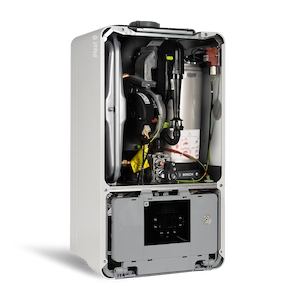Fast, reliable boiler servicing
Get a quote in seconds,
prices from just £99 - spread the cost with Klarna.
Which? Trusted Trader
for 2 years running
Which? Trusted Trader
for 2 years running
Working with the best

Recognised by the biggest names in home services.





A clear, simple process
We help homeowners access fast, reliable home-energy solutions.
Book your service
Answer a few quick questions about your boiler and choose your preferred date.
No signup needed
Choose add-ons
Select any additional services like filters, system flushes, or safety checks.
Pay over 3 months
Engineer visits
Our Gas Safe engineer arrives on your chosen date to service your boiler.
Gas Safe certified

Which? Trusted Traders
Approved engineers
Stress Free Boiler Servicing
Saving you time
Fixed price online quote
No nasty surprises
Experience iHeat
Fixed online prices, with easy and fast servicing.
Premium After Care
Our dedicated after care team are as experienced as they come, and fully devoted to assisting you with any queries.
5-Star Reviews
Over 10,000 5-star reviews - a testament to our expertise, performance and dedicated service.
Pay In 3
Choose Klarna at the checkout to help you spread the costs over 3 months.
Fixed Price Quote
An iHeat quote is stress-free, fixed price and literally takes seconds.
Expert Local Engineers
We operate a nationwide network of Gas Safe registered heating engineers, we only deploy local engineers.
Top Boiler Brands
We service all major boiler brands including Worcester Bosch, Vaillant, Ideal, and Baxi from trusted manufacturers.
Why choose iHeat for boiler service?
We make boiler servicing simple, transparent, and stress-free. Trusted by thousands of homeowners across the UK.
Fixed Price Service
No hidden fees or surprise costs. Get a transparent, fixed-price quote in seconds.
Fast Booking
Book your service in minutes. Choose your preferred date and we'll handle the rest.
Gas Safe Engineers
All our engineers are Gas Safe registered and fully insured for your peace of mind.
Pay In 3 with Klarna
Spread the cost over 3 months with Klarna. No interest, no fees.
Keep Your Warranty
Annual servicing helps maintain your boiler warranty and ensures optimal performance.
Dedicated Support
Our aftercare team is here to help with any questions or issues after your service.
More reasons to choose iHeat
We go above and beyond to ensure your boiler service is hassle-free and delivers real value.
Quick & Convenient
Book online in minutes. Choose your preferred date and time slot that works for you.
Comprehensive Check
Full boiler inspection including safety checks, efficiency testing, and component cleaning.
Detailed Report
Receive a complete service report documenting all checks and any recommendations.
Nationwide Coverage
We operate across the UK with local engineers available in your area.
Competitive Pricing
Starting from just £99. Transparent pricing with no hidden fees or call-out charges.
Energy Efficiency
Regular servicing helps maintain efficiency, reducing your energy bills and carbon footprint.
Prevent Breakdowns
Catch issues early before they become costly repairs. Regular maintenance saves money long-term.
Flexible Scheduling
Book at a time that suits you. We offer flexible scheduling including evenings and weekends.
Thousands of happy customers
Watch real stories from homeowners across the UK
who upgraded with iHeat.

Great experience with iHeat - customer service was excellent and very responsive.
Staylor

Contacted Monday, fitted Wednesday - home was nice and toasty when I got back.
Julie


Great service from start to finish - heating engineer was fantastic - worked quickly and tidily.
Gavin

Booked within 24 hours - able to book fitting of new boiler quickly.
Kelly

Amazing communication - clear and consistent comms throughout the process.
Rosie

100% recommend iHeat - very easy and straightforward process.
Emily

Pricing a lot cheaper than competitors - installation completed in less than 2 days from order.
Mr L.
Very professional service - helpful advice on the phone, polite and informative.
Anne
Everything you need to know
Find quick answers to our most common questions.
Boiler help & expert guides

How Efficient Is My Boiler?
Boiler energy efficiency refers to how well a boiler uses its fuel to generate heat. This efficiency...
Gas Safe Engineer
13 February 2026
Guides

This Valentine's Day we’re asking - Does the size of your pipe really matter? 2026
This Valentine’s Day we want to let you in on a dirty little secret…
Gas Safe Engineer
12 February 2026
Guides

What Happens After Your Boiler is Installed By iHeat?
In this guide, we’ll be answering some of the most frequently asked questions about what happens aft...
Gas Safe Engineer
12 February 2026
Advice

Worcester Bosch Greenstar 4000 System Boiler Review
Today we will review the Worcester Bosch Greenstar 4000 System Boiler, and whether this system boile...
Gas Safe Engineer
11 February 2026
Reviews
Book your boiler service today
Getting a quote takes less than 20 seconds,
select your type of boiler.








